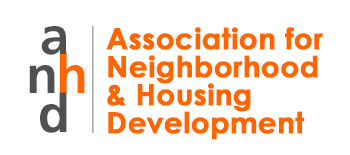New York City Fights for New Banking Law – Court Decision Due Within the Week
The fate of the Responsible Banking Act (RBA) once again lies with US District Judge Katherine Polk Failla. In September of last year, Judge Failla ruled against the NY Bankers Association and in favor of the NYC Council and allowed the RBA to move forward. We hope she does so again and will find out soon – the decision is expected by early next week. Over $150 billion of New York City’s dollars flow to and through the banks authorized to hold these deposits. The RBA lets the city use the power of that money to hold banks accountable to better meet the needs of our local communities.
The Bankers continue to claim that (1) the RBA turns the City into a regulator by making banks change their behavior and (2) that the law will cause banks irreparable monetary and reputational harm if they are labeled as non-compliant or as performing below standards, and even worse if they are removed as a designated depository bank.
Unlike in 2014, the court’s resolution of the case will now rely solely on the matter of pre-emption. The State and Federal government have multiple regulatory powers over banks, including the Community Reinvestment Act. If the judge decides that the law does indeed make the city another regulator, the law would be struck down as “preempted” by the State and Federal laws, which the City is not allowed to replicate.
The oral arguments lasted barely two hours wherein the judge once again asked thoughtful, detailed questions. In reality, however, the arguments were not very different than last time.
The Bankers Association continued to claim that the law will cause all sorts of injuries fromfinancial burdens to reputational harm to constitutional preemption. The City once again rebutted all of these arguments. For one thing, despite what the bankers say, the RBA is purely a transparency law and voluntary for banks to comply with, although we very much hope that they will. Second, the banking commission has always had the power to ask for and use the same information if they chose to do so as community service is already part of the decision-making process for choosing banks eligible to hold City deposits.
NYC has already lost millions in property taxes due to the foreclosure crisis and tens of thousands of rent-regulated units due to irresponsible multifamily lending on the part of non-bank and bank lenders alike. New York residents, businesses and nonprofits suffer loss of wealth and opportunities without adequate access to bank accounts, loans, and investments.
The RBA is a common sense tool to encourage high quality reinvestment and basic banking activity and increase transparency among the banks that seek to hold our deposits and do business with our city. The RBA will provide local level data to help the city and the public better understand how these banks are meeting the credit and banking needs of our community. The public hearings provide us an opportunity on a regular basis to respond to this data by calling out banks to change when their practices are causing harm to our communities and encourage banks to continue and expand upon good practices that are helping.
The Needs Assessment has already proven to be a meaningful tool. Through data analysis and public participation, the City has a comprehensive analysis of the credit and banking needs of NYC residents, businesses, and organizations. As ANHD outlined in a previous blog, the needs assessment highlights the disparities in home loans, business loans, and branches for lower-income and minority people and neighborhoods. The public comments echoed the need to address these disparities and other needs, including affordable bank products; equal access for immigrants; assistance for homeowners in or at risk of foreclosures; and support for nonprofit developers and community organizations. The health of New York City residents and neighborhoods depends upon banks acting responsibly and responding to these needs in a meaningful way.
The power of this bill comes not from any new regulatory powers by the City, but rather from the people. If all the RBA did was to gather and publish data and issue reports, nothing would happen. The power comes from people participating in the process to ensure that the banking commission and the City at large have information that truly reflects the vast experiences of our diverse neighborhoods and people, including banking needs and how banks are responding.
What can you do?
- Organize! Talk to your friends and neighbors about banks and community needs. Join a community organization – ANHD members are perfect! Attend local meetings!
- Show up! There is strength in numbers: Get the word out and encourage other people to get involved
- Speak up! Make comments at the public hearings (or in writing) about your community needs and how banks are responding. Next Public Hearing for Annual Report: September 9, 6pm, 209 Joralemon St., Brooklyn, NY (Courtroom – floor 2).
Click HERE to learn more about the RBA.
Click HERE to read Crain’s New York coverage on the RBA trial.
Community Investment Advisory Board members include the following representatives:
- Mayor: Peter Hatch
- Commissioner of Finance: Jeffrey Shear
- Commissioner of Housing Preservation and Development (HPD): Tracey Gardner
- Comptroller: Brian Cook
- Speaker of the City Council: Tanisha Edwards
- The City’s banking industry (appointed by the Mayor): Blondel Pinnock, Carver Bank
- Community development, housing, and/or consumer protection organizations (appointed by the Speaker): Bernell Grier, NHS NYC
- Small business owners (appointed by the Speaker): Chris Kui, AAFE
Blogger: Jaime Weisberg, Senior Campaign Analyst
Blog team: Benjamin Dulchin, Lena Afridi, Jonathan Furlong, Moses Gates, Emily Goldstein, Ericka Stallings, Jaime Weisberg, Barika X. Williams. Editor, Anne Troy
 ANHD 2016 Building the Community Development Movement
ANHD 2016 Building the Community Development Movement
